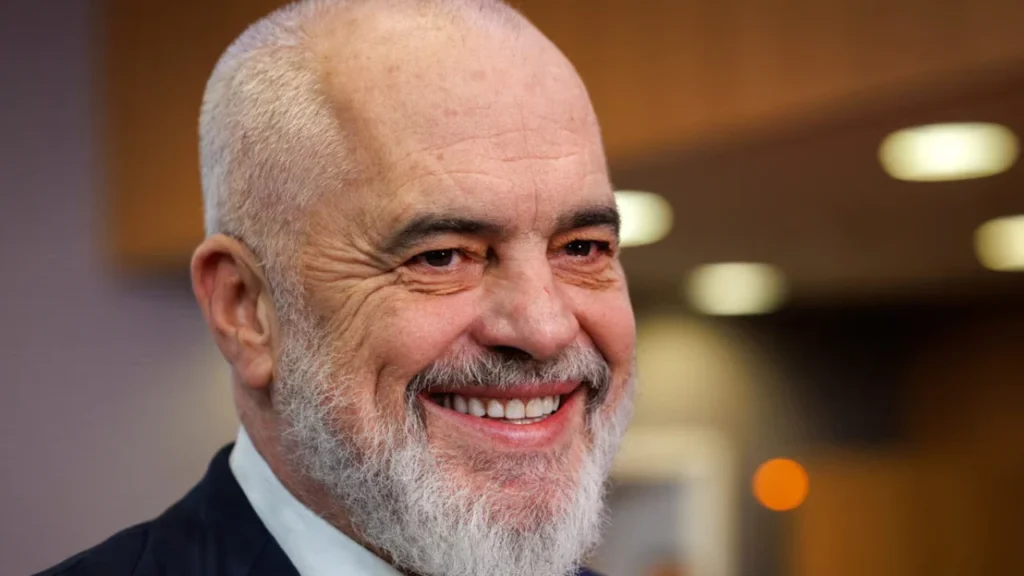Albania has made history by becoming the first country in the world to give a minister’s job to artificial intelligence (AI). This is not a minister for AI, but an AI itself. The virtual minister is called Diella, which means “sun” in Albanian. Prime Minister Edi Rama introduced Diella as the new Minister for Public Procurement. Her main job is to fight corruption and make sure that government contracts and tenders are handled in a fair and transparent way.

Background
Albania has faced serious problems with corruption for many years, especially in public tenders, where the government gives contracts to private companies. These scandals have not only reduced people’s trust in the system but also slowed down Albania’s efforts to join the European Union (EU). The EU has made it clear that fighting corruption is one of the main conditions for membership.
Prime Minister Edi Rama, who started his fourth term in May, has promised to improve governance through digital reforms. The appointment of Diella as an AI minister is part of this plan. It is both a practical step to make processes more transparent and a symbolic move to show that Albania is ready to use modern technology to fight corruption.
Who is Diella?
Diella is the name of Albania’s new AI minister. The name means “sun” in Albanian, chosen to represent light and hope.
Diella was first launched in January 2025 as a virtual assistant on the government’s e-Albania platform. Since then, she has been helping people and businesses with many online services. For example, she has already issued more than 36,600 digital documents, provided around 1,000 services, and added electronic stamps to official papers. This has made government work faster and helped reduce unnecessary delays.
Diella also has a friendly avatar that appears on screens. She is shown wearing traditional Albanian clothing, which makes her look more connected to the country’s culture and people.

The Appointment
On September 11, 2025, Prime Minister Edi Rama announced his new cabinet and introduced Diella as the Minister for Public Procurement. Her main role is to handle government tenders and contracts. Rama promised that with Diella in charge, tenders would be “100% free of corruption”, fully transparent, and more efficient than before.
However, the government has not yet shared details about what kind of human oversight will guide Diella or prevent possible risks. There is also a legal issue: Albania’s constitution says that ministers must be citizens who are at least 18 years old. Since Diella is an AI, her appointment is seen as largely symbolic, meant to show Albania’s commitment to technology and reform.
Reactions
The announcement of Diella as AI minister has caused mixed reactions.
The government sees this as a way to modernize governance and show that Albania can use technology to improve transparency and efficiency. Prime Minister Rama wants this move to set an example for other countries.
The opposition Democratic Party called the idea “ridiculous” and “unconstitutional”, pointing out that the law requires ministers to be human citizens over 18.
Experts have different views. Dr. Andi Hoxhaj from King’s College London said AI could make public tenders more transparent if it is programmed correctly. Aneida Bajraktari Bicja from Balkans Capital said the idea could work if proper systems are built, but also noted that Rama sometimes mixes real reform with political theatrics.
The public has reacted with humor on social media. Some joked, “Even Diella will be corrupted in Albania.”
International media also has mixed opinions. Some praise the move as an innovative experiment, while others see it as political theatre rather than a serious step toward reform.
Symbolism vs. Reality
Prime Minister Rama admits that there is a publicity element in appointing Diella. He says the move is meant to pressure other ministers and government agencies to work faster, think differently, and adopt modern tools.
Legally, Diella cannot serve as a real minister because Albania’s constitution requires ministers to be human citizens over 18. This means her role is mostly experimental and symbolic, showing Albania’s commitment to technology and transparency.
However, the appointment also raises important questions. How will accountability work if an AI makes mistakes? Could someone manipulate the AI to favor certain companies? And can AI avoid bias in decision-making? These are challenges that Albania and other countries will need to consider if AI becomes more involved in governance.
Broader Implications
Diella’s appointment could become a model for AI-driven governance in other countries. It shows how technology might help governments fight corruption and make processes faster and more transparent.
The move is also part of Albania’s push to join the European Union by 2030, where demonstrating progress in reducing corruption is very important.
Other nations will be watching closely. If Diella works well, it could inspire countries to use AI in government. If not, it might become a cautionary tale about relying too much on technology for political decisions.
The big question remains: Is this true innovation in governance, or just a political stunt to gain attention?
Conclusion
Albania has taken a bold and unprecedented step by appointing an AI as a government minister.
Diella’s appointment is not only a symbol of the future of governance, but also a test case to see how AI can work in politics and public administration.
Now, the world is watching. Can AI really help fight corruption and improve transparency, or will Diella remain just a digital mascot in Albania’s government?


Leave a Comment